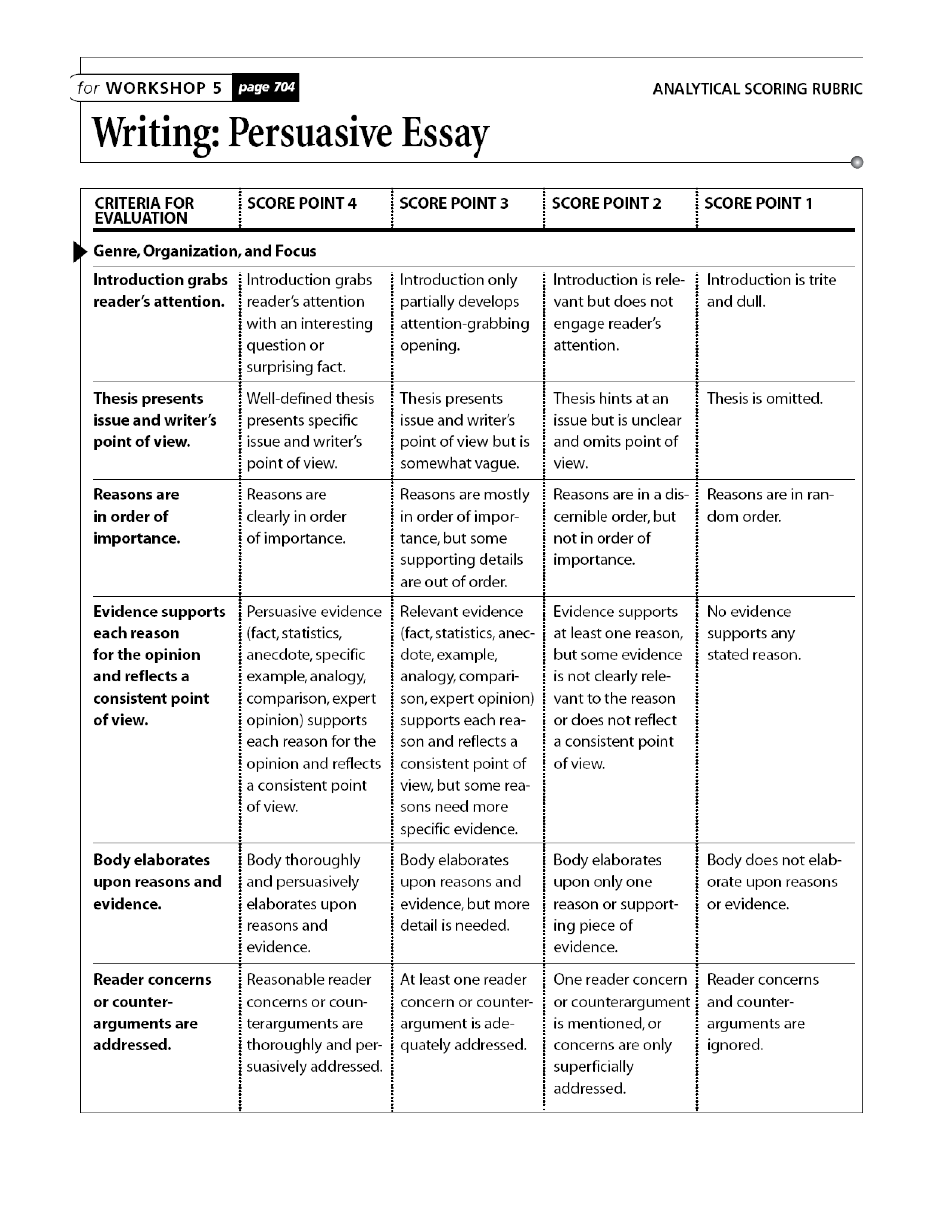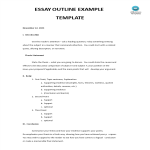Persuasive Essay Rubric

Speichern, ausfüllen, drucken, fertig!
How to write an engaging Persuasive Essay? If you've been feeling stuck or lack motivation, download this template now! Download this Persuasive Essay Rubric template now!
Verfügbare Gratis-Dateiformate:
.pdf- Dieses Dokument wurde von einem Professional zertifiziert
- 100% anpassbar
Business Unternehmen essay Aufsatz Persuasive Essay Überzeugender Aufsatz Persuasive Überzeugend Sample Persuasive Essay überzeugenden Essay Beispiel
How to write an engaging Persuasive Essay? If you've been feeling stuck or lack motivation, download this template now!
Do you have an idea of what you want to draft, but you cannot find the exact words yet to write it down or lack the inspiration how to make a text persuasive? If you've been feeling stuck, this Persuasive Essay will help you find inspiration and motivation. The purpose of a persuasive essay is to convince the audience to change their views on an important issue or to take action to change something. In the following example, the writer argues against the use of uniforms in school. Notice that the essay follows the proper MLA format.
What is persuasive messages give an example?
When you want to write a persuasive message, the key to be engaging and convert visitors to achieve your goals, is that the content attracts attention, intrigues, informs, convinces, or calls to action. Persuasive messages can be successful, if they meet the demands of the reader, in terms of: reason vs emotion. Every piece of content has elements of:
- Ethos, or credibility;
- Pathos, or passion and enthusiasm; and
- Logos, or logic and reason.
In order to be persuasive, it's important to make a powerful mix of the above. By only focusing on reason with cold, hard facts and nothing but the facts, you may or may not appeal to your audience.
People make decisions on emotion as well as reason, and even if they have researched all the relevant facts, the decision may still come down to impulse, emotion, and desire.
On the other hand, if your persuasive message focuses solely on emotion, with little or no reasoning, it may not be taken seriously. Avoid using too many abstract terms, because not everybody is capable to understand these. If you wish to be persuasive in your writing, make sure your content contains all the elements, and don't expect your audience to fill in the blanks. The more concrete you are, the more it helps your readers to make sense of your message and the product or service.
Finally, if your persuasive message does not appear to have credibility that backs up the arguments, the message may be dismissed entirely. This sample Persuasive Essay covers the most important topics that you are looking for and will help you to structure and communicate in a professional manner with those involved.
Persuasive Essay
The purpose of a persuasive essay is to convince the audience to change their views on an important issue or to take action to change something.. In America’s high schools, students should not be forced to wear uniforms because they take away a student’s sense of individuality, they do not allow for self-expression, and they absolutely do not save families any money.. Is it fair to prevent them from exploring self-expression by making them wear uniforms By taking away a student’s right to choose what to wear, we also take away the opportunity to express oneself..
Feel free to download this intuitive template that is available in several kinds of formats, or try any other of our basic or advanced templates, forms or documents. Don't reinvent the wheel when you want to make a persuasive text, but learn from the best...
Download this Persuasive Essay template and save yourself time and effort! You will see completing your task has never been easier. Here you can see examples of persuasive messages in business communication as well.
HAFTUNGSAUSSCHLUSS
Nichts auf dieser Website gilt als Rechtsberatung und kein Mandatsverhältnis wird hergestellt.
Wenn Sie Fragen oder Anmerkungen haben, können Sie sie gerne unten veröffentlichen.

